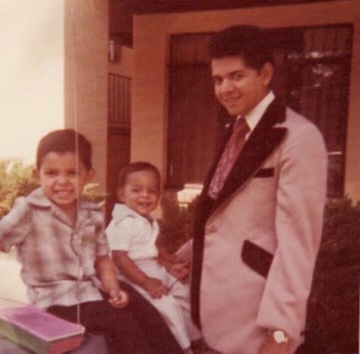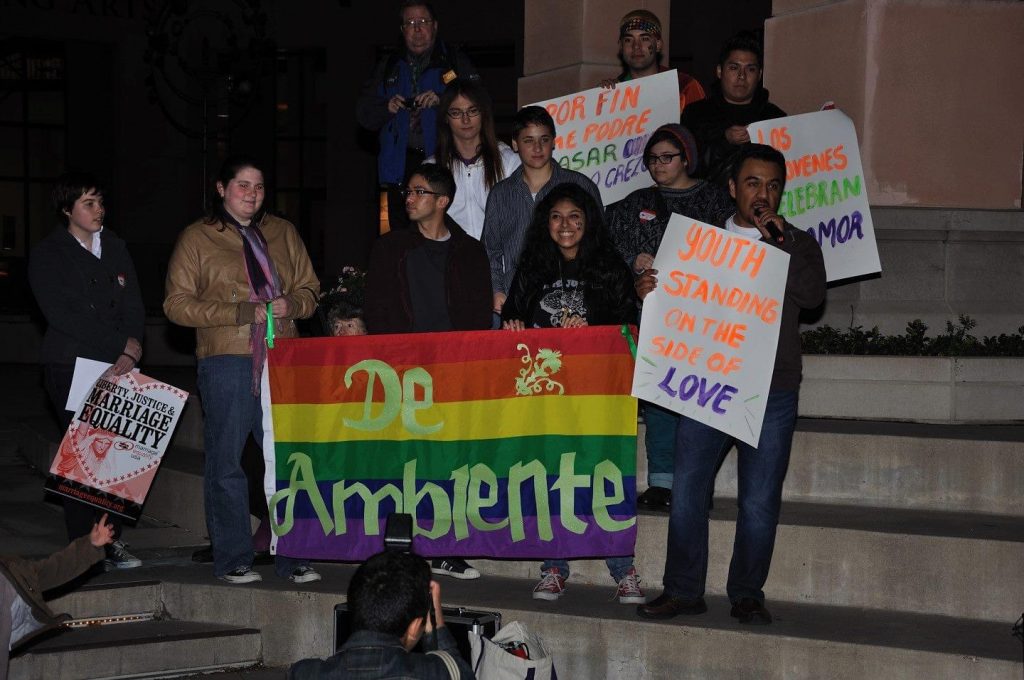At 23, San Jose State University alumna Jaria (rhymes with Mariah) Jaug (pronounced “Haug”) is the youngest person on the Berryessa school board. She is also the first openly bisexual board member.
For the newly elected official, things still feel “surreal.” “I never thought I’d do politics this early in my life.”
With her election, she became only the fifth out LGBTQ person currently serving on a K – 8 or K – 12 school board in Santa Clara County.
The daughter of Filipino immigrants, Jaria grew up going to schools in the district she now represents. Equity is her top priority.
Jaria aims to ensure student success across all income levels with after-school programs and additional resources. She is also looking to expand mental health services, an issue that is close to her heart.
As a child in the Berryessa school district, Jaria relied on resources like on-campus social workers for support for her anxiety. “My parents grew up in the Phillippines and mental health wasn’t a thing,” she explained. “I know other children of immigrants might have similar experiences.”
After coming out as bisexual at age 15, Jaria got her start in community by involvement volunteering for the Billy DeFrank LGBTQ Community Center. “My identity led me to this work and showed me that queer people can do great things for the community.”
At SJSU, Jaria majored in business with the intent to go into marketing, but her first marketing class changed her mind. “I knew I wanted to help my community, not market products for the rest of my life.”
It was Dr. Ken Yeager’s local government class that first sparked her interest in politics. “[His] class changed my world and opened so many doors,” she said. “I realized politics was the way I could create the most change.”
Friends, family, and colleagues encouraged Jaria to run for the school board. “It was my sister that really put the nail in the coffin,” she said. “She convinced me. She said ‘If you want to run you should, because all of these people think you would do a good job.’”
Three of the five seats on the Berryessa board were up for election in November. Incumbents were running for two of those seats. The third seat was vacant due to one of the trustees resigning earlier. This presented a great opportunity for Jaria to be one of the three top vote-getters.
When she did decide to file, it was a bit last minute, but as soon as she did, Jaria was met with overwhelming support from the Filipino community and candidates in other local elections.
Fortunately, campaigning was nothing new for her. Before she was elected to the board, Jaria worked as a field representative for Assembly District 25 and campaign coordinator for Alex Lee’s re-election campaign.
She raised a total of $10,000 for her campaign through events, call time, and joint walks with political clubs and other candidates. The funds allowed her to print lawn signs, publish a website, and pay the exorbitant candidate statement fee. Her weekends were spent door-knocking with members of the Young Democrats and other candidates, such as Aisha Wahab who was running for state senate and whose district overlapped with Jaria’s.
As an openly queer board member, Jaria has been dedicated to centering the needs of the LGBTQ+ community since day one. She has done this by bringing questions to the superintendent such as, “How are we teaching kids about what’s going on in the LGBTQ+ community?” “How are we supporting trans children?” and “How are we creating inclusive classrooms?”
She has been warmly received by her board colleagues, especially Thelma Boac, who is Filipina as well.
In addition to serving on the school board, Jaria is the policy/legislative director for San Jose City Council member David Cohen.
Jaria hopes her presence on the school board encourages other young, queer people of color to run. “I know young people might not think they look like a typical board member, but they’re part of the community, so why not?”
On June 14, Juria proposed a resolution to the Berryessa Union School Board to have all the district’s 10 elementary and three middle schools raise the Progress Pride flag during the first week of June to celebrate Pride month. It also stated that all schools will include LGBTQ+ literature in their libraries and will have at least one all-gender bathroom for students. Her resolution passed on a 4-0 with one abstention.







